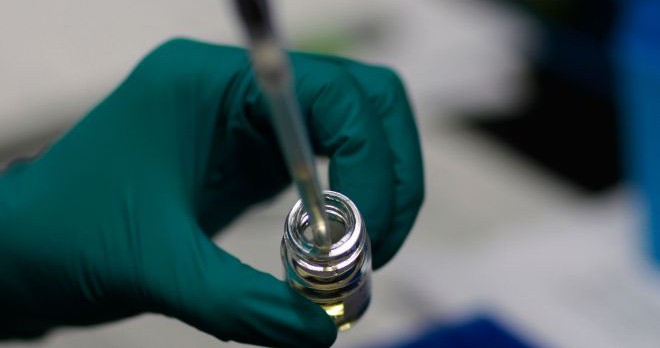
Early data from a “first-in-people” clinical trial at Washington University School of Medicine in St. Louis, MO, reveals that personalized melanoma vaccines may provide a powerful immune response in people with advanced stages of the disease. The results of the trial are reported in this week’s issue of the journal Science.
The experimental vaccine was tested in just three melanoma patients, so the results are considered very preliminary. Still, experts describe the magnitude of the findings as “promising” and say the approach could be applied to other types of cancer in the future.
To help the melanoma patients fight off their cancers, the researchers sequenced the genomes of their tumors. They used this genetic information to figure out what peptides (chains of amino acids) known as neoantigens would show up on the surface of the tumor.
“You can think of a neoantigen as a flag on each cancer cell,” first author Dr. Beatriz Carreno, an associate professor at Washington University School of Medicine in St. Louis, said in a statement. “Each patient’s melanoma can have hundreds of different flags.”
Our immune systems are supposed to react violently to these peptides and attack the cells they come from. But to help boost this natural immune response, the researchers selected seven of the tumor-specific peptides for each patient and built vaccines designed to “remind” the immune system to attack them. They went after the “flags” that are most likely to elicit the most effective immune responses.
After receiving the vaccines, blood samples were taken from the patients every week for 4 months, at which point the researchers found that each patient had an increased number and diversity of T cells fighting the tumors.
The Verge explains the findings in further detail:
The results are promising. For each patient, the immune system recognized three of the seven neoantigens contained in the vaccines. As a result, patients that received the vaccines produced more cancer-fighting T cells and, more importantly, produced more different kinds of T cells. This is kind of a big deal, the researchers say; it means that cancer patients have a potentially rich pool of tumor-specific immune cells that stay dormant — unless they’re activated by a vaccine. “Our team is very encouraged by the quality of the immune response directed against the melanoma neoantigens in all three patients,” says Gerald Linette, a co-author of the study and an oncologist at Washington University.
The stage III patients weren’t asked to rely solely on these vaccines. They’d already received traditional treatment. But a three-dose, 18-week course of personalized vaccines gave all three patients a T cell boost without any negative side effects. In theory, the same kinds of vaccines could be made to suit any patient — with any kind of cancer — and help boost the effect of whatever treatment they’ve chosen. According to AAAS Science, “such a vaccine, which should be less toxic than chemotherapy, might [also] be used to prevent cancer from recurring after surgery.” Three patients is very few for a medical study, so these results are about as preliminary as you can get. But they’re still pretty promising.
“At the moment it’s not clear how effective this immunotherapy would be at killing cancer cells in the body and improving survival,” Alan Worsley of Cancer Research UK (who wasn’t involved in the study) told the BBC, “but this promising study sets the stage for creating vaccines that are designed to target each patient’s individual tumor in the future.”
